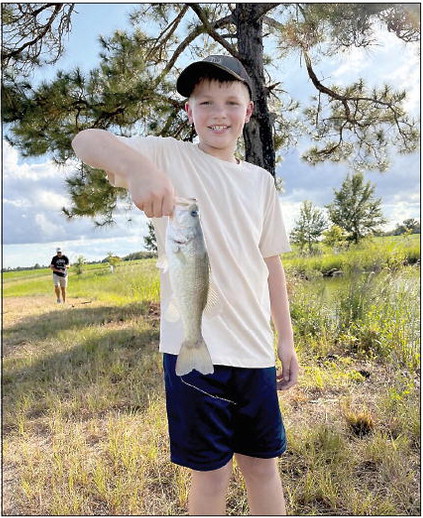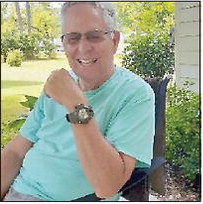continued from page scaling them, ….


continued from page
scaling them, making the slit along the belly, and removing the entrails. Lawson’s eyes never left his father’s hands. He was a quick study. Together, they filleted the bass but left the bones in the bream, and then they headed inside to Mom’s Ohoopee kitchen for the cooking lesson.
“The fish were already damp, so I showed him how to sprinkle a little salt on them and roll them around in the cornmeal,” Mom told me later. “Then we gently dropped them in the hot grease. I explained how to watch them and flip them over to cook the other side until they’re golden brown, then take them out.”
That day, several family members gathered around the table and ate Lawson’s fish. The pride on our little outdoorsman’s face lit up the room. He decided he liked the taste of bass better than the bream. His older siblings, Lydda and Andrew, loved eating the fish, too. Then Lawson started teasing them, reminding them that he’d done all the work while they just sat down at the table and ate what he’d worked so hard for.
In today’s world of grocery stores, fast-food drivethrus and delivery apps, most kids don’t understand where food comes from. They don’t know how to grow it, hunt it, catch it, prepare it, or cook it. But these lessons? These are as important—perhaps more important—than math, science, or history. These are survival lessons. These are life skills.
Now Lawson knows— he understands how to provide. It’s just one lesson among thousands he’ll learn in his lifetime, but it warms my heart that my nephew and my mother took the time to show him, to be patient, to explain it all. That’s how we keep the best parts of who we are alive—one fish, one lesson, one generation at a time.





NITTY GRITTY
Posted on